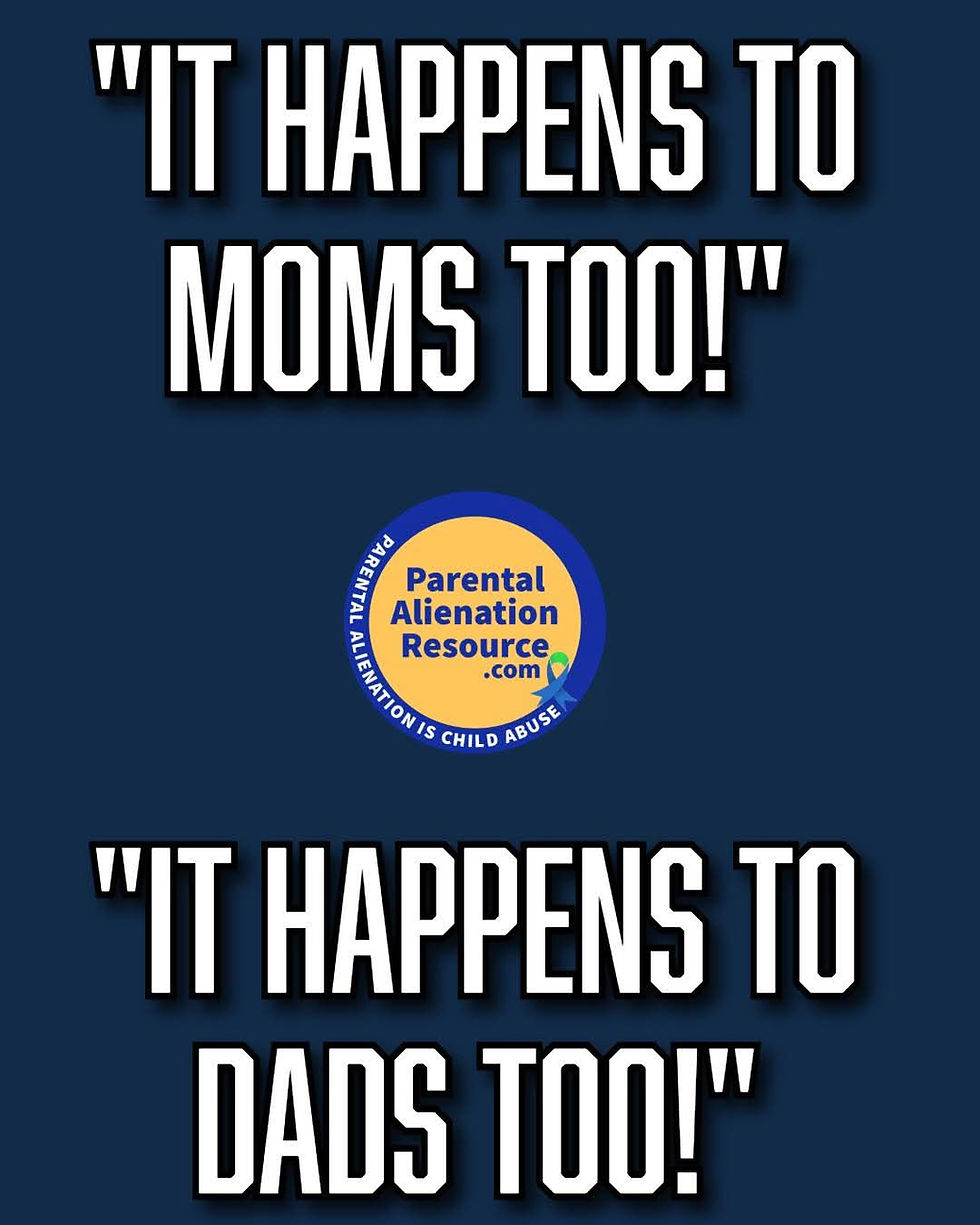10 Indicators That You May Be a Victim of Coercive Control
- Parental Alienation Resource

- Aug 5, 2023
- 2 min read
Updated: Aug 13, 2023

Recognizing signs of coercive control can be challenging, but here are 10 indicators that you may be a victim of coercive control by your child's parent:
Isolation: The controlling parent may isolate you from friends and family, making it difficult for you to maintain relationships or seek support outside of the relationship.
Monitoring and Surveillance: They might excessively monitor your activities, such as constantly checking your phone, emails, or social media accounts, or tracking your whereabouts without your consent.
Financial Control: The controlling parent may restrict your access to money, control your finances, or withhold financial resources as a means of maintaining power and control over you.
Threats and Intimidation: They may use threats, intimidation, or blackmail to manipulate and control your behavior. This can include threats of harm, threats to take away your children, or threats of legal action.
Gaslighting: Coercive control often involves gaslighting, which is a tactic used to make you doubt your own perception of reality, memory, or sanity. The controlling parent may deny or distort events, causing you to question your own experiences.
Emotional Abuse: Chronic emotional abuse can be a key indicator of coercive control. This can include humiliation, criticism, degradation, and constant belittling.
Micro-Managing: They may exert control over everyday tasks and decisions, such as what you wear, what you eat, or how you parent your child. They may also criticize and undermine your choices.
Extreme Jealousy and Possessiveness: The controlling parent may display excessive jealousy and possessiveness, trying to isolate you from others and control who you interact with.
Manipulation and Blame-Shifting: They may manipulate situations and shift blame onto you, making you feel responsible for their behavior and actions.
Physical Violence or Threats: In some cases, coercive control can escalate to physical violence or threats of violence. This is an extreme form of control and should not be ignored.
If you suspect you are experiencing coercive control, it is essential to seek support from professionals trained in domestic violence or from organizations that specialize in assisting victims of abuse.









Comments